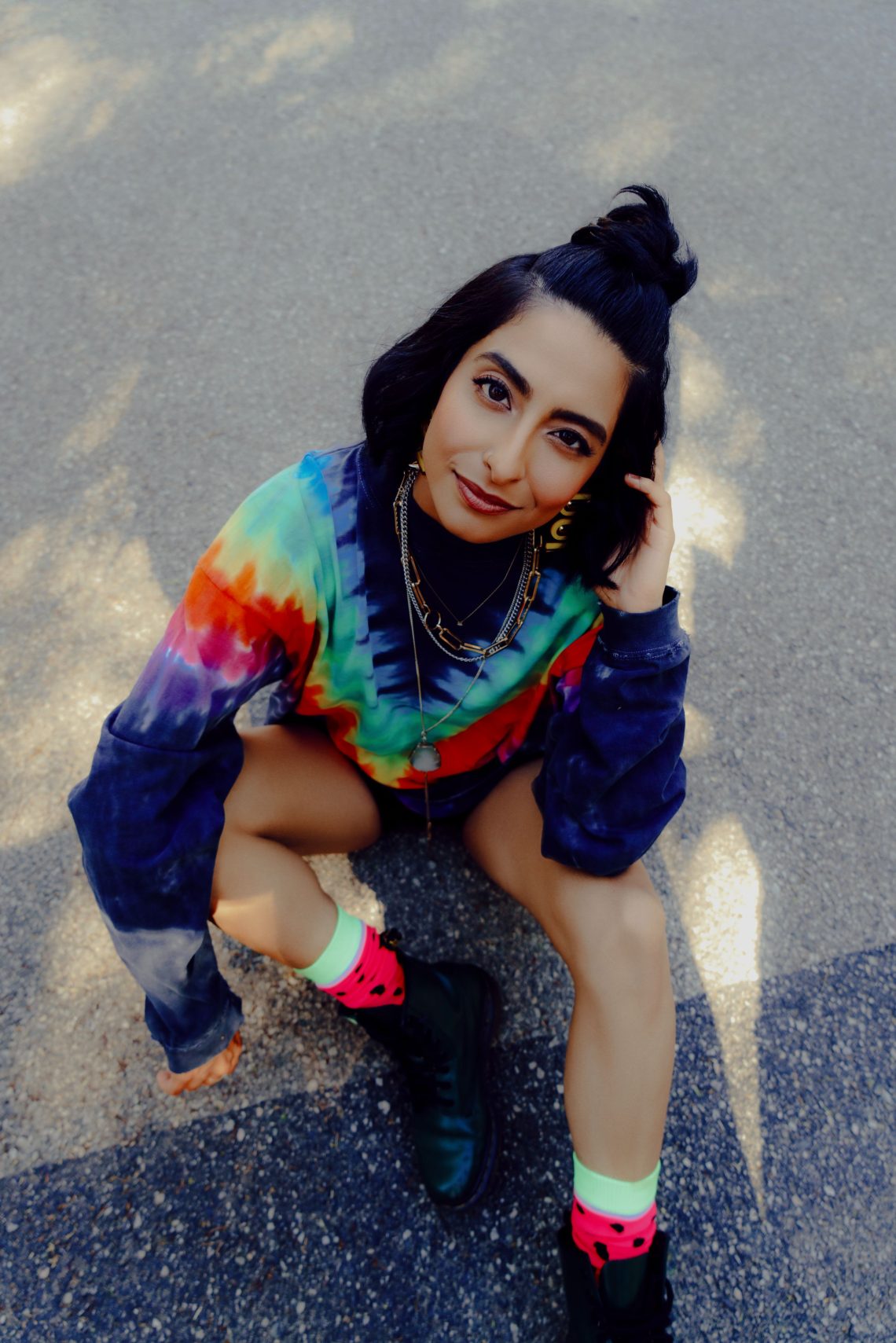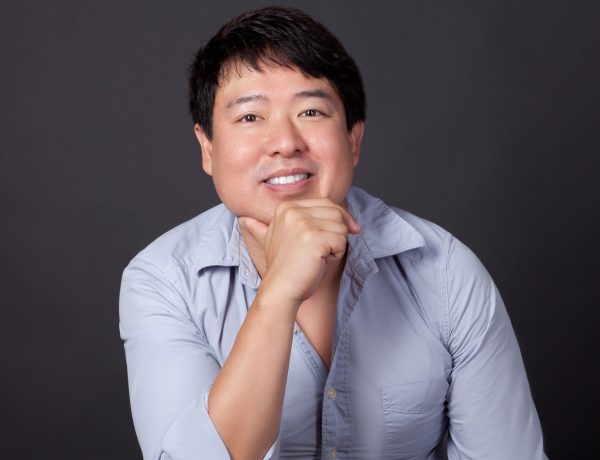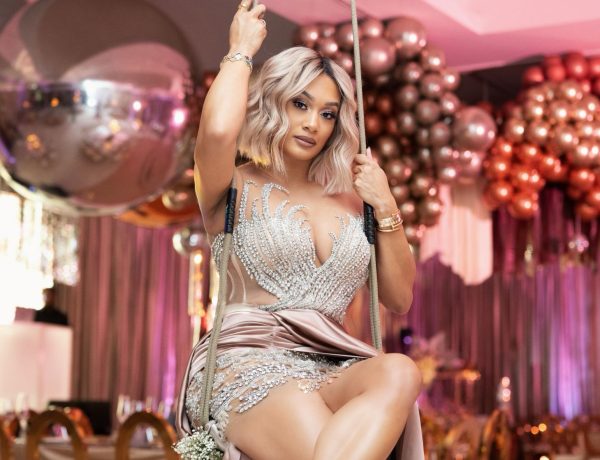Kausar Mohammed’s heart is most full when she’s celebrating the inherent happiness to be found in the multitude of her identities. “I love narratives that center joy for folks who are historically underrepresented on TV. I feel like when we are represented on the screen, it’s previously been done through trauma stories or through specific gazes. When we’re allowed to tell our own stories, we’re allowed to step into the power of the joy that it is to be Muslim, the joy that it is to be queer or the joy it is to be a woman, all those things. There’s an importance to that because joy is an essential part of being seen as human,” she says, smiling. That exuberance is vibrantly on display in her recent short film, The Syed Family Xmas Eve Game Night, which features a queer Pakistani Muslim woman bringing her girlfriend home for the first time. “It’s a queer Muslim romcom short that was directed by Fawzia Mirza. It’s a project that I wrote and starred in as Noor. Essentially it’s inspired by my own life of bringing my partner home to my two older sisters for the first time and introducing them. I was writing it at a time where I wanted to see a positive, joyful representation of a queer Muslim family in front of me. So that’s what it centered on. This queer young woman gets her happy story where she can have both her family and her partner. That’s what inspired me to create it.” The story dreams of a world where queer folks don’t have to choose between love and rejection. “The intention is for it to be aspirational and unapologetically aspirational. Being able to maintain both open queerness and family I realize is a privilege that a lot of queer folks out there and a lot of queer youth don’t have. So it’s a matter of acknowledging that this is coming from a place of potential privilege, but also thinking about how we can reimagine better futures for ourselves.”
Kausar is exhilarated by the winds of change in the industry. “It was so lovely and so much fun to play Noor. To me, process is everything when we’re creating. The process of it was just joyful to be able to be able to work with a director like Fawzia Mirza, who’s also a queer Pakistani Muslim woman, to workshop the script. And then the people we had around us to tell the story, and the crew being largely, a lot of queer folks, a lot of BIPOC and femme folks, so all in all it just felt like a very healing and fun experience. I feel like something in the past two years has opened up where there have been some really great queer female roles that I’ve come across. When I played Soraya in 4400, that was very specifically queer Muslim and Pakistani. And it’s just like, ‘Wow, we can tell these stories now, people want to hear them.’ I want to shout out Fatima Asghar, another queer Muslim creator who did a short called Got Game. That was very fun too, but it’s just so exciting to see these stories.” Her primary goal is to bring about a long overdue overhaul to a media landscape determined to relegate Muslims to the sidelines – or to outright pretend they don’t exist. “Pillars Fund put out a study in the past year that showed that out of 200 popular mainstream films, there was only one character that was a Muslim queer person. That was a Muslim queer man. The study goes into how representations of Muslims are super stark. And there’s some really great stats in that. That tells us that we have so much more to go. Now we’re seeing Ms. Marvel and we have the Ramy’s, but we have so much more to go.” Forget mere visibility – the end goal is supersaturation. “What my partner (and producing partner) Amalia Mesa-Gustin and I talk about a lot is over representation and how that’s the place we need to go. For so long, we’ve been seeing Hollywood and our media through a straight white male gaze. And what does that mean? We have to swing the other way. We have to teach audiences to identify with other characters other than the straight white male. I want to usher in unapologetic overrepresentation.”
She also co-founded her organization SHIFT, a racial and gender equity consulting group, in an effort to elevate the most marginalized communities in our professional dialogue. “SHIFT was started by myself and two of my very good friends, Veline Mojarro and Natalie Bui. In 2017, the three of us had been doing our own work in different spaces around gender equity and racial equity. Then #MeToo dropped. We had this realization that we were craving the tools and the space that was so readily accessible in college to sort of have conversations about racial equity and culture of consent and the embedding of arts and politicization – being able to discuss those things and, and break it down. We wanted to be able to recreate those spaces for the people around us in our professional workspaces now, years later.
When it comes to our justice, diversity, inclusion & equity work (JDEI),our intent is to center the most impacted. Whether it’s putting our identities at the forefront or lifting up the identities of others around us, be it Black folks, Indigenous folks, trans folks, non-binary folks, disabled folks, how do we put them at the forefront of the conversations when it comes to that? Essentially what we do is we provide training and workshops and educational resources for corporations, universities, and campuses.” Art and society are inextricably linked in the push for inclusion. “We need to unapologetically embed the role of art and artists within social movements. Why does it have to be separate from these environments? To me, there is no separation. It’s all a part of the movement. Artists play a role as much as community builders, as much as politicians. We want to create something for us where we’re talking about these things, but we’re doing it in a way that feels genuine to us. It’s about the power of creating space.” If we’re all motivated by uplifting one another and surrounding ourselves with love and community, our joy will be a radical and prolific act. You can currently catch Kausar as Yaz Fadoula on season five of Jurassic World: Camp Cretaceous on Netflix!
Read more Celebrity Interviews on ClicheMag.com
Kausar Mohammed Believes in the Unapologetic Joy of Diversity. Photo Credit: Nolwen Cifuentes. Styling: Sharmila Ray. Makeup: Danielle Haxton. Hair: Harper.





